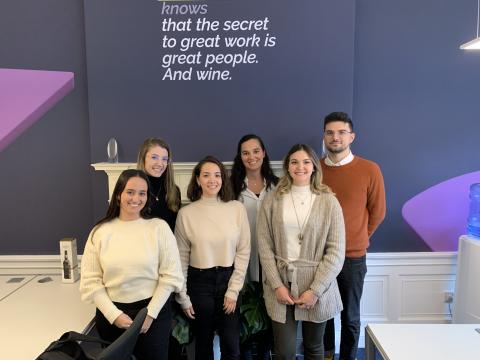Digitising construction in Europe: How PEACOC can help!
Digital technology is a constant in everyday life and currently shaping our present and future. Since 2018, the European Commission is committed to position this digital transformation into improving citizen’s daily life, boosting and innovating businesses to compete on fair terms in a digital single market, while helping the European Union (EU) reach climate neutrality [1].
The EU’s Digital Strategy [2] aims to make this transformation work for people and businesses and sets a vision for the Commission to become a digitally transformed, user-focused and data-driven administration by 2022, by:
- acting on borderless digital public services while strengthening cybersecurity;
- directing towards a sound data ecosystem;
- promoting agility, innovation and co-creation;
- underlining the importance of enabling actions towards transformation.
To meet this strategy, a digital transformation must be operated:
- through committed support at political and management levels;
- focused on people and their needs, regardless the importance of data and technology;
- encouraging innovation of business models (through the creation of new products and services) and improvement in operational processes (increasing efficiency and results through technology).
This digital transformation is present today in all industries and productive sectors, and specific digital solutions must be found:
- to “provide “borderless, interoperable, personalised, user-friendly, end-to-end digital services” [2];
- to transform current management and business processes, focused on user experience and on the needs and specificities of particular economic sectors, such as construction industry.
The construction industry is one of the most important and strategic economic sectors, with a significant social and economic role in providing good housing conditions, buildings and infrastructures. In the last decade, there have been efforts to encourage the sustainable competitiveness of the construction sector [3]:
- comprises a wide range of activities before and during construction (from building design to the manufacture of materials) and throughout the buildings service life cycle;
- currently being challenged towards sustainability and climate change mitigation;
- constant innovation practices in construction products can support the growth of a more competitive market.
However, the construction sector also presents challenges that must be taken into account, as it is still a conventional industry where traditional methods and processes are commonly recognized as “cheaper”, “easier” and “more reliable”.
Thus, it is important to:
- disseminate successful practices and case studies, focused on improving performance and reducing costs;
- focus on the importance of management on digital transformation of process;
- focus on personalised adaptive e-business strategies, comprising specific data for each context.
The project PEACOC - PErsonAlised e-Business Coaching for Construction SMEs aims to support SME’s on these digital transformation. PEACOC will design, develop, test, implement and disseminate an innovative e-Business Manager Training Course (BMT) based on the needs and specificities of the construction sector, providing e-business strategies for boosting border sales and adopting e-business tools for improving performance and reducing operating costs. This training methodology will comprise a series of modules each addressing elements of the e-business lifecycle which normally features core processes such as trading, contracting, payment and delivery, but also supporting processes, such as communication, promotion and overall service, among others.
Under the PEACOC first activity, an overview of e-commerce in the construction sector was performed gathering national information from four countries of the project (United Kingdom, Portugal, Greece and Slovenia) demonstrating the great potential for growth of e-commerce in construction companies and the importance of the development of specific training actions in e-commerce for the sector.
PEACOC is co-financed by the Erasmus+ programme from EU and is being co-promoted by CIVIC - Civic Computing Limited (project coordinator), IDEC - Aintek Symvouloi Epicheiriseon Efarmoges Ypsilis Technologias Ekpaidefsi Anonymi Etaireia, Itecons - Instituto de Investigação e Desenvolvimento Tecnológico para a Construção Energia Ambiente e Sustentabilidade, Atermon B.V. and CCIS - Gospodarska Zbornica Slovenije.
[1] European Commission, Shaping Europe’s digital future, (2020). https://ec.europa.eu/info/strategy/priorities-2019-2024/europe-fit-digital-age/shaping-europe-digital-future_en.
[2] European Commission, A digitally transformed, user-focused and data-driven Commission, (2018). https://ec.europa.eu/info/publications/EC-Digital-Strategy_en.
[3] European Commission, Strategy for the sustainable competitiveness of the construction sector and its enterprises, (2012). https://eur-lex.europa.eu/legal-content/EN/TXT/PDF/?uri=CELEX:52012DC0433&from=EN.

